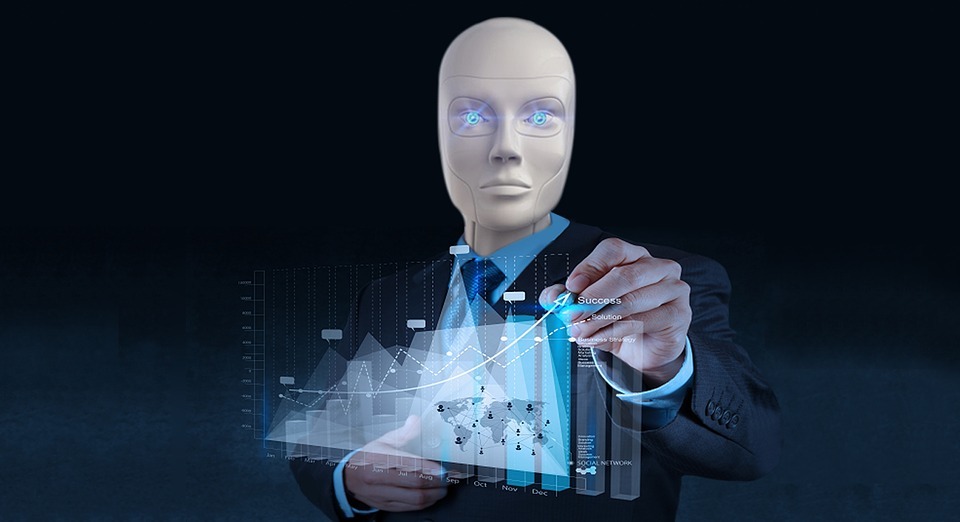We’re living in the future! AI, or artificial intelligence, is absolutely here to stay. Sometimes referred to alongside machine learning, the age of robotics is already well underway, and it’s fascinating to see just how AI is already making our lives more efficient. For example – you might have a home assistant in your kitchen that you use to set reminders!
Of course, there are some concerns regarding AI and the rise of robots. Much of this, arguably, remains in science fiction – will we ever get to a stage where there’s a robotic uprising? Probably not if we pay attention to some of our favorite books and movies (and learn from their mistakes)!
AI is appearing much more user-friendly, and more approachable, than many may have first imagined. It’s thanks to the work of innovators such as Rodrigo Liang that AI is continuing to surge into our everyday lives. Liang’s company, SambaNova Systems, is at the forefront of helping to make the world that little bit more efficient.
So, let’s focus on the positive. What are some of the more exciting or most promising elements of AI that can outweigh those rising concerns mentioned above?
Concern: Leaving everything to robots is extremely risky
Truth: It really isn’t!
One of the main reasons for artificial intelligence sweeping into the mainstream at all is to help reduce human error. People aren’t perfect. Even those who are well-trained and amazingly qualified can still make mistakes here and there.
AI and machine learning are based on precedence. That means artificial intelligence can and will make decisions based on human ‘perfection.’ However, there’s zero chance that AI will let emotion or fatigue get in the way.
This means that we can effectively allow robotics to handle strenuous or dangerous jobs for us without fear that they will make things worse.
Concern: We’ll all lose our jobs
Truth: There’s a chance many jobs will become outdated, but that doesn’t mean mass unemployment.
One of the biggest concerns regarding AI, particularly in the workplace, is that it will sweep in and take all of the human roles. The more menial and dangerous tasks that people already do, for example, will go to robots and machines instead.
That is a legitimate concern; however, it does not mean that we can expect all of our jobs to disappear. You only have to take a look at how far we’ve come regarding automation already. Many food packaging and automotive factories use largely robotic processes. The assembly lines of old have evolved in a big way. And there hasn’t been a devastating robots versus workers displacement as a result.
Modern software testing tools incorporate machine learning to solve the painstaking process of maintaining tests. This frees testers from menial tasks so they can invest more time to find real bugs.
AI is being drip-fed into our world. It’s more likely that robotics and machine learning will complement our everyday tasks and jobs, giving us more time to be extra-efficient elsewhere. This also helps to balance the argument that AI will make us all lazy!
Concern: AI can’t apply context to tasks
Truth: Some can, some can’t, but that doesn’t mean the sensitive jobs will all go to robots.
One of the biggest worries of the AI age is that machines lack the ability to ‘think outside of the box.’ They are unable to work on tasks beyond looking at input and output, or pure black and white. That’s as it stands right now, but there are a few promising touches we can look forward to seeing.
Some AI is already able to apply context to certain tasks. For example, Google is already using smart search algorithms that effectively guess an emotion or intention behind keywords. In addition to this, it’s safe to say that we likely won’t be giving ‘emotionless’ AI the jobs that require human processing. That’d be costly, inefficient, and dangerous.
Concern: AI is extremely complex
Truth: It’s increasingly easy to work with AI.
It’s true – and again, we can look at artificial intelligence in your home as a great example. If you have an Amazon Echo, or use Siri on your iPhone, you’re already using AI in your daily life. You likely already depend on machine learning to some extent, and you may not even have realized.
If AI and machine learning are to grow in the years and decades to come, it all needs to be simple to deploy and understand. Otherwise, it’s lacking one of its leading selling points. AI is developed to make our lives easier.
Yes – while the technology right now may seem complex if you go behind the scenes, it’s actually getting simpler all the time. It’s very exciting to imagine how we’re going to be using AI in our everyday lives in the decades to come! It’s yet another element of our weird and wonderful world that’s worth looking at in deeper awe.
So – for every concern or myth regarding AI, there’s always likely to be a simple counterpoint. It could just make your life easier before you know it!
